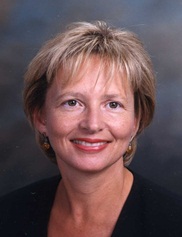Grants Funded
Grant applicants for the 2024 cycle requested a total of nearly $3 million dollars. The PSF Study Section Subcommittees of Basic & Translational Research and Clinical Research evaluated more than 100 grant applications on the following topics:

The PSF awarded research grants totaling over $650,000 dollars to support more than 20 plastic surgery research proposals.
ASPS/PSF leadership is committed to continuing to provide high levels of investigator-initiated research support to ensure that plastic surgeons have the needed research resources to be pioneers and innovators in advancing the practice of medicine.
Research Abstracts
Search The PSF database to have easy access to full-text grant abstracts from past PSF-funded research projects 2003 to present. All abstracts are the work of the Principal Investigators and were retrieved from their PSF grant applications. Several different filters may be applied to locate abstracts specific to a particular focus area or PSF funding mechanism.
Role of Matrix Metalloproteinases in Reepithelialization
Sherry Collawn MD, PhD
2017
AL - 32/250 - University of Alabama at Birmingham
Pilot Research Grant
Wounds / Scar
Reepithelialization of the skin is a complex process and its delay in wound healing can cause a number of problems including infection, increased area of injury, scarring, pain, and loss of function. The long-term goal of this proposal is to develop effective therapies that accelerate reepithelialization. Reepithelialization involves cell migration as an initial feature of the healing process. This process involves signaling by various soluble mediators as well as cell- cell and cell – extracellular matrix interactions. We hypothesize that matrix metalloproteinases are highly involved in the process of reepithelialization. We also hypothesize that the addition of adipose-derived mesenchymal cells from noninjured tissues will enhance this repair process by affecting matrix metalloproteinases. These hypotheses have been tested in monolayer and 3-D cultures. Confirmation will be obtained in animal and human studies.
 My initial funding involving skin injury began in 1993 with my psef grant to examine the “Therapeutic Effect of Hydration Following Chemical Peels.” This research resulted in the publication of "Ultrastructural Study of Skin Following Facial Chemical Peels and the Effect of Moisturization on Wound Healing" in Plastic and Reconstructive Surgery. I then received funding for “The Basement Membrane: Its Role in Re-epithelialization” and demonstrated the important finding that occlusion promotes wound healing in a human subject trial and this article was published in Plastic and Reconstructive Surgery “Occlusion Following Laser Resurfacing Promotes Re-epithelialization and Wound Healing.”
Since that time my research has evolved into an evaluation of proteins and factors produced by adipose-derived stromal cells (ADSC) which stimulate skin reepithelialization in 3-D cultures. Our published results indicate that adding ADSC (adipose-derived stromal cells) or their conditioned media to the 3-dimensional skin raft culture results in faster wound repair after injury. Gene silencing will now be used to evaluate the roles of confirmed stimulatory factors found in the mass spectrometry examination of ADSC-conditioned media. The ultimate goal is to develop an ADSC wound healing protocol that will be used in the clinics and hospitals to accelerate wound healing.
My initial funding involving skin injury began in 1993 with my psef grant to examine the “Therapeutic Effect of Hydration Following Chemical Peels.” This research resulted in the publication of "Ultrastructural Study of Skin Following Facial Chemical Peels and the Effect of Moisturization on Wound Healing" in Plastic and Reconstructive Surgery. I then received funding for “The Basement Membrane: Its Role in Re-epithelialization” and demonstrated the important finding that occlusion promotes wound healing in a human subject trial and this article was published in Plastic and Reconstructive Surgery “Occlusion Following Laser Resurfacing Promotes Re-epithelialization and Wound Healing.”
Since that time my research has evolved into an evaluation of proteins and factors produced by adipose-derived stromal cells (ADSC) which stimulate skin reepithelialization in 3-D cultures. Our published results indicate that adding ADSC (adipose-derived stromal cells) or their conditioned media to the 3-dimensional skin raft culture results in faster wound repair after injury. Gene silencing will now be used to evaluate the roles of confirmed stimulatory factors found in the mass spectrometry examination of ADSC-conditioned media. The ultimate goal is to develop an ADSC wound healing protocol that will be used in the clinics and hospitals to accelerate wound healing.